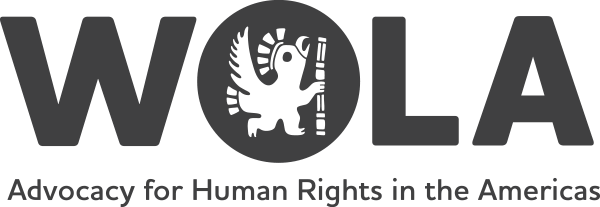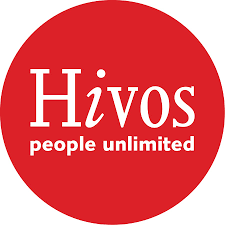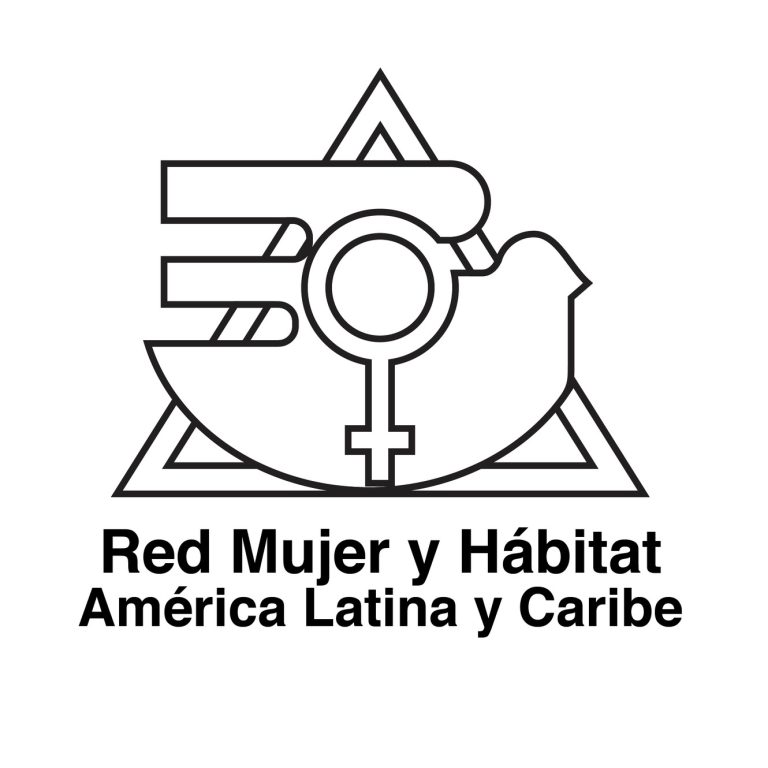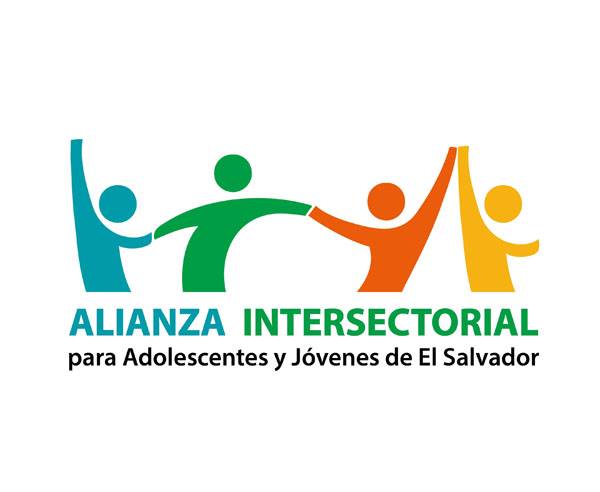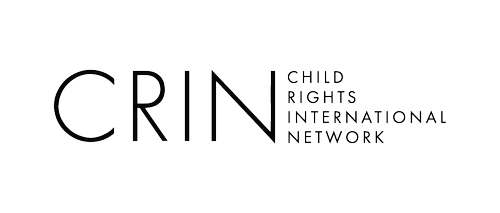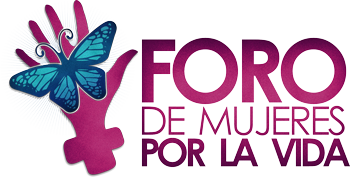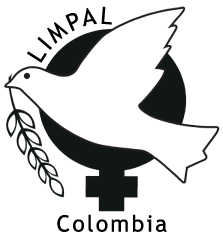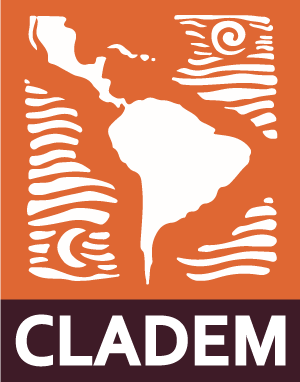Advocacy
The devil whispered in our ear, “You’re not strong enough to stand the storm”.
Today we whispered in his ear, “We ARE the storm”.
– Unknown
Choose a region: North America | Latin America & The Caribbean | South America | Europe | Africa | Asia | Australia
North America
WOLA is a leading international research and advocacy organization advancing human rights in the Americas. They aim to promote public policies that protect human rights, recognize human dignity, and empower justice to overcome violence. WOLA tackles problems that transcend borders and demand cross-border solutions.
Diakonia works with about 400 local partners in 25 countries to support organizations that work for the rights of women and indigenous peoples as human rights, gender equality, and social and economic justice. They combat gender-based violence, especially violence against women, and support organizations that provide legal support and disseminate knowledge about gender-based violence and sexual and reproductive rights.
Hivos acknowledges and develops new ways of generating broad social and institutional changes to advance gender equality, diversity, and inclusion (GEDI) and achieve equality for all. With their partners, they directly support key rightsholders in securing the power, ability, and leadership positions necessary to drive change globally by focusing on Access to inclusive sexual and reproductive health and rights, economic justice, and increasing women’s, youth, and LGBTIQ+ leadership and political participation.
The Women and Gender Constituency (WGC) is one of the nine stakeholder groups of the United Nations Framework Convention on Climate Change (UNFCCC) and now consists of 33 women’s and environmental civil society organizations. WGC is working to amplify women’s voices and their rights for a sustainable and just future to ensure that gender equality and women’s human rights are central to the ongoing discussions.
La Red Mujer y Hábitat América Latina y Caribe is a network of institutions and women committed to promoting women's rights and greater gender equality in the field of habitat, territory, and the city throughout Latin America.
Girl Up has a mission to advance gender justice worldwide by expanding girls’ skills, rights, and opportunities to lead. They have operations in North America, Europe, Africa, Asia, Southeast Asia, and Latin America (Brazil, Colombia, Argentina, Mexico, and Chile).
Pro Mujer is a social enterprise in Latin America working to advance gender equality by focusing on health and well-being, financial inclusion, and skilling opportunities. In addition to its New York headquarters, Pro Mujer has offices in Mexico, Guatemala, Nicaragua, Bolivia, and Argentina.
Open Society Foundations is a funder for independent groups actively working toward equity, justice, democratic governance, and human rights worldwide. There are offices in all regions of the world.
International Women’s Development Agency (IWDA) is an Australian-based organization that defends and advances the rights of diverse women and girls. IWDA and Womankind Worldwide have created “Plan Your Power: A Toolkit for Women’s Rights Advocacy Planning.”
Human Rights Watch defends the rights and secures justice in nearly 100 countries worldwide, including a focus on women’s and children’s rights. Human Rights Watch is working toward the realization of women’s empowerment and gender equality by ending forced child marriage, human trafficking, and violence against women, including rape. They also aim to increase access to education and political participation.
The International Alliance of Women (IAW) is an international NGO comprising 44 member organizations involved in the promotion of the human rights of women and girls globally, with consideration of general consultative status with the UN Economic and Social Council.
Gender at Work is an international feminist advocating for inclusive cultures and ending discrimination against women. While partnering with researchers and activists worldwide, they are educating communities about inequality structures and embedded societal discriminatory norms through Gender Action Learning, courses, consulting, and podcasts. They aim to produce innovative approaches and transformative tools.
Women’s Environment and Development Organization (WEDO) is a global advocacy organization that aims to promote and protect gender equality, human rights, and the environment. WEDO partners with leaders to facilitate global agendas to ensure women’s voices are heard and women’s leadership is advanced.
Women in Global Health is part of a global network that aims to achieve gender equality in health leadership, with chapters in Argentina, Chile, Bolivia, Brazil, and Mexico. They unite professionals from across the country to advance the issue of gender equality in health and catalyze change.
Rise Up is a non-profit organization that works with leaders in Africa, South Asia, Latin America, and the United States, partnering with women, girls, and allies for gender equity and justice in education, health, and economic opportunity globally. For example, Rise Up introduced the Leadership & Advocacy Accelerator training to Brazil.
Women’s Learning Partnership is an international, non-profit, non-governmental partnership of 20 autonomous women’s rights organizations throughout the Global South that promote women’s leadership, civic engagement, and human rights. WLP is part of the Special Consultative Status with the Economic and Social Council (ECOSOC) of the United Nations. They have launched women’s rights campaigns in over 30 countries. For example, WLP and CEPIA created the package “Gender Equality Resources for Brazilian Activists” to promote the education of the Brazilian community.
Comisión Nacional de los Derechos México is an institution fighting for women’s rights as human rights by providing reports, conducting trainings, and collaborating internationally to disseminate rights. They advocate for three principles: gender equality, no discrimination, and no violence against women.
International Center for Transitional Justice (ICTJ) is a global non-profit that challenges the causes and addresses the consequences of human rights violations, including gender justice. ICTJ works with victims to affirm their dignity, fight impunity, promote responsive institutions, hold those responsible to account, reform and build democratic institutions, and prevent the recurrence of violence or repression.
Centro por la Justicia y el Derecho Internacional (CEJIL) released the joint statement, “Coalition of Human Rights Organizations of the Americas.” They support democratic institutions and the impact on human rights in OAS member countries and aim to protect the human rights defenders (HRDs) in various countries, including Venezuela, El Salvador, Nicaragua, Guatemala, Honduras, Peru, and Ecuador, particularly those defending the environment, sexual and reproductive rights, women, children and youth, LGBTTTIQA+ individuals, and are committed to an Inter-American system. CEJIL works with feminist and women’s rights organizations to address the structural discrimination and violence faced by women.
https://cejil.org/en/press-releases/coalition-of-human-rights-organizations-of-the-americas/
Consenso de Montevideo sobre Población y Desarrollo is a regional monitoring program established by the Regional Conference on Population and Development in Latin America and the Caribbean. It follows population dynamics and sustainable development with equality and a rights-based approach, tracking topics like gender equality, adolescents, and sexual and reproductive health.
The Organization of American States (OAS) is the oldest international institutional system advocating for more people's rights. It is based on four pillars: democracy, human rights, security, and development. The Inter-American Commission of Women (CIM) is a specialized organization within the OAS and was the first intergovernmental agency established to ensure recognition of women's human rights. It is the only hemispheric political forum for women's rights and gender equality. It supports the campaign for an Inter-American Convention on Sexual and Reproductive Rights.
Alianza Intersectorial para Adolescentes y Jóvenes de El Salvador promotes actions to guarantee a comprehensive approach to the health of the next generation through a unified and intersectoral effort.
La Coordinadora de Organizaciones para el Desarrollo is a feminist cooperation seeking the transformation of the current capitalist, patriarchal, androcentric, colonial, and racist societies and governmental structures. They advocate economic, commercial, immigration, environmental, and social policy coherence to guarantee human rights and equality between people and protect the environment via the elimination of all forms of discrimination, violation of rights, and violence against women.
Say NO – UNiTE to End Violence against Women is a network of social mobilization platform that showcases advocacy efforts by civil society, activists, governments, and the UN system, through an interactive website and social media accounts.
https://www.unwomen.org/en/what-we-do/ending-violence-against-women/unite
https://lac.unwomen.org/en/que-hacemos/fin-a-la-violencia-contra-las-mujeres/take-action/say-no
Red Latinoamericana de Mujeres Defensoras de Derechos Sociales y Ambientales serve the feminist mining territories of Anya Yala women in Argentina, Brazil, Bolivia, Chile, Colombia, Ecuador, El Salvador, Guatemala, Honduras, Mexico, Peru, and Uruguay. They aim to expand South American alliances and resistance by influencing policies, projects, and practices that contribute to the defense of the rights of our people, nature, and human rights, as well as social rights violated by extractive mining projects that directly affect women.
Paz y Desarrollo (Peace and Development) is an international organization that promotes peace, development, and gender equality, including efforts to prevent violence against women and girls in 10 countries in Africa, Latin America, and Asia. They are a social organization for cooperation and development that acts 'glocally' in impoverished and developing countries. They conduct a series of actions linked to respect for human rights, instruments for endogenous, economic, and social development, and the priority in our specialization in gender equality.
The Association for Women's Rights in Development (AWID) is a global, feminist, membership, movement-support organization working to achieve gender justice and women’s human rights worldwide. Through strategically influence policy and practice, convening power to facilitate dialogue, and mobilize our members and the movements, they strive to allow all women to thrive, to be a driving force in challenging systems of oppression, and to co-create feminist realities.
Girls’ Globe is a global feminist media platform for gender equality, human rights, social justice, and sustainability. It amplifies changemakers’ voices worldwide by connecting underrepresented voices to a global audience that spans every country. Girls' Globe works with a broad range of partners to build momentum for movements of change.
Child’s Rights International Network (CRIN) is a creative human rights organization focusing on children’s rights. They press for rights and campaign for a genuine shift in how governments and societies view and treat adolescents. They encourage radical change by using research, policy, art, and advocacy to communicate their vision for the future. They advocate for environmental justice, ending the recruitment of child soldiers, and supporting abuse survivors to end impunity for institutional sexual violence against children in religious institutions in Latin America.
The International Center for Research on Women (ICRW) is an organization of Advisors, Research, and Advocacy teams that collaborate closely to design and implement evidence-based programs that promote gender equality and empower women, girls, and structurally excluded populations. The center gender inequity to inform solutions from creating sustainable business practices, to expanding opportunities for youth, to addressing the ever-changing global health challenges.
Latin America & The Caribbean
South America
Córdoba Solidaria is a network of more than 30 international groups and social organizations that promote Human Rights, Cooperation, Solidarity, Feminism, and Ecology with solidarity with Latin America. They promote social justice, equity, and respect for the human rights of all people.
La Coordinadora de Organizaciones para el Desarrollo is a feminist cooperation seeking the transformation of the current capitalist, patriarchal, androcentric, colonial, and racist societies and governmental structures. They advocate economic, commercial, immigration, environmental, and social policy coherence to guarantee human rights and equality between people and protect the environment via the elimination of all forms of discrimination, violation of rights, and violence against women.
Say NO – UNiTE to End Violence against Women is a network of social mobilization platform that showcases advocacy efforts by civil society, activists, governments, and the UN system, through an interactive website and social media accounts.
https://www.unwomen.org/en/what-we-do/ending-violence-against-women/unite
https://lac.unwomen.org/en/que-hacemos/fin-a-la-violencia-contra-las-mujeres/take-action/say-no
Red Latinoamericana de Mujeres Defensoras de Derechos Sociales y Ambientales serve the feminist mining territories of Anya Yala women in Argentina, Brazil, Bolivia, Chile, Colombia, Ecuador, El Salvador, Guatemala, Honduras, Mexico, Peru, and Uruguay. They aim to expand South American alliances and resistance by influencing policies, projects, and practices that contribute to the defense of the rights of our people, nature, and human rights, as well as social rights violated by extractive mining projects that directly affect women.
La Red de Mujeres Rurales de América Latina y El Caribe (RedLAC) is an international organization in Argentina that creates a space for rural women, farm workers, regardless of skin color, political or religious affiliation with the principle interculturality and an intergenerational perspective to promote gender equality, rights, and opportunities.
Mujeres Creando is a Bolivian anarchist feminist movement that has used graffiti and creativity as its instruments of struggle. It has made the street its main stage for fighting for patriarchal justice. It is a reference to rebellion and challenge to the patriarchal system and violence in all its expressions for more than 15 years. They challenge the neoliberal governments that plunged the population into poverty and unemployment.
La Coordinadora de Organizaciones No-Gubernamentales de Desarrollo españolas en Ecuador (COEEC) is a group of non-profits, with legal statutes adjusted to Spanish law recognized under the agreement of Ecuador, conducting political action in the Ecuadorian territory and whose purpose is cooperation with the peoples, communities, and inhabitants of Ecuador, for their community development, including a commitment to reducing gender gaps, equal opportunities and social justice.
Paz y Desarrollo (Peace and Development) is an international organization that promotes peace, development, and gender equality, including efforts to prevent violence against women and girls in 10 countries in Africa, Latin America, and Asia. They are a social organization for cooperation and development that acts 'glocally' in impoverished and developing countries. They conduct a series of actions linked to respect for human rights, instruments for endogenous, economic, and social development, and the priority in our specialization in gender equality.
The Association for Women's Rights in Development (AWID) is a global, feminist, membership, movement-support organization working to achieve gender justice and women’s human rights worldwide. Through strategically influence policy and practice, convening power to facilitate dialogue, and mobilize our members and the movements, they strive to allow all women to thrive, to be a driving force in challenging systems of oppression, and to co-create feminist realities.
Girls’ Globe is a global feminist media platform for gender equality, human rights, social justice, and sustainability. It amplifies changemakers’ voices worldwide by connecting underrepresented voices to a global audience that spans every country. Girls' Globe works with a broad range of partners to build momentum for movements of change.
Child’s Rights International Network (CRIN) is a creative human rights organization focusing on children’s rights. They press for rights and campaign for a genuine shift in how governments and societies view and treat adolescents. They encourage radical change by using research, policy, art, and advocacy to communicate their vision for the future. They advocate for environmental justice, ending the recruitment of child soldiers, and supporting abuse survivors to end impunity for institutional sexual violence against children in religious institutions in Latin America.
The International Center for Research on Women (ICRW) is an organization of Advisors, Research, and Advocacy teams that collaborate closely to design and implement evidence-based programs that promote gender equality and empower women, girls, and structurally excluded populations. The center gender inequity to inform solutions from creating sustainable business practices, to expanding opportunities for youth, to addressing the ever-changing global health challenges.
World Vision is a global Christian, community-based humanitarian organization. They tackle injustices in health, education, child protection and sponsorship, and gender equality to allow and children and families to reach their full potential.
Save the Children works to improve the lives of children worldwide. They work in the areas of humanitarian crisis to protect the youth and ensure children’s voices are heard, their rights are realized, and their issues are prioritized. They ensure children receive quality basic education regardless of whether they are caught up in emergencies, face extreme poverty, or are discriminated against because of their gender, disability, or ethnicity.
They support equality in education, ensuring that no child’s learning stops because they are caught up in crisis. They help children prepare for kindergarten and learn to read by third grade — a major indicator of future success. They focus on reaching vulnerable children in rural America with scarce early learning resources. Globally, they ensure that no child’s learning stops because they are caught up in crisis.
The Tahirih Justice Center is a nonpartisan, secular organization founded on the principles of the Baháʼí Faith based in the U.S. yet serves the global community. While being survivor-centered and trauma-informed, they advance unity by celebrating and honoring our diverse beliefs and identities. They believe laws and systems too often benefit those with power and privilege and must be transformed to advance gender equality, racial justice, and social equity by advocating against gender-based violence, including issues such as child marriage, domestic violence, rape, FMG/C, and human trafficking.
Fòs Feminista is an intersectional feminist organization centered around the sexual and reproductive health and rights of women, girls, and gender-diverse people. They engage in healthcare, education, and advocacy around the world, including providing sexual and reproductive health services and implementing community-based strategies to improve accessibility to marginalized women and girls in Latin America and the Caribbean. They engage in comprehensive sexuality education and provide care to survivors of gender-based violence.
Red de Salud de las Mujeres Latinoamericanas y del Caribe (RSMLAC) is an organization supporting the Free Citizenships program; justice in comprehensive health, sexual health, and reproductive health; and body autonomy in terms of sexual and reproductive rights of all women in Latin America and the Caribbean. They fight against any discrimination, oppression, subordination or violence based on reasons of their age, due to their cultural identity (race/ethnicity), disability, race, sexual orientation, gender expression and identity, religious option, politics, socio-economic situation and geographical location.
Foro de Mujeres por la Vida is a feminist platform of individuals and organizations based in the North-Western zone of Honduras. They advocate for women’s autonomous processes of growth, reflection, and promotion of our rights to full participation in society.
Mujeres en Movimiento is an initiative of 8 former female transport ministers and vice ministers from Latin America to bring feminine power to the transport, energy, and sustainability agenda, particularly supporting gender equity through the Sustainable Development Goals of the United Nations Organization.
Center for Women’s Global Leadership is a group from Rutgers University with an initiative to end gender-based violence and femicide while being committed to the progress of women at the university. They initiated the annual international 16 Days Campaign, comprised of 16 days of activism against Gender-Based Violence from November 25th, the International Day for the Elimination of Violence against Women, and runs until December 10th, Human Rights Day.
Corporación Humanas is a Chilean-based organization spreading awareness of human rights and gender justice by informing the public about legislative agendas.
Liga Internacional de Mujeres Por La Paz y La Libertad Limpial Colombia is a feminist, pacifist, and anti-militarist organization and affiliate in Colombia of the Women's International League For Peace and Freedom (WILPF) movement. They aim to strengthen the collective processes that enhance the political agency of women.
https://limpalcolombia.org/es/
They also offer a virtual learning environment built with the purpose of reducing inequality gaps for women in access to knowledge, since it is completely free and easy to use on different technological devices. Participants have the opportunity to access three courses autonomously and advance at their own pace of knowledge appropriation through the proposed themes and contents with the support of tutors who accompany the processes of each course.
The Latin American and Caribbean Committee for the Defense of Women’s Rights (CLADEM) is a network of women’s organizations and individuals united to achieve the effective defense of women’s rights in Latin America and the Caribbean. It engages in formulating legislative proposals, research, training, informing, communicating, and exercising solidarity actions to promote women’s rights.
Women’s Link Worldwide is a Global South-led intersectional feminist, anti-racist, anti-ableist, and anti-colonial human rights organization based in Latin America and the Caribbean, East Africa, and Europe. Their objective is to bring justice to women, girls, and gender-diverse people by dismantling structural barriers to their rights, including protection from gender-based violence and access to sexual and reproductive healthcare.
Pan American Health Organization (PAHO) is the specialized international health agency for the Americas. It works with countries throughout the region to improve and protect people's health. PAHO's policies reflect an unwavering commitment to the principles of equity, respect for human rights, and the exercise of citizenship, as well as the willingness to actively join the global trend aimed at eliminating all forms of gender-based discrimination.
The Center for Reproductive Rights is a global human rights organization of lawyers and advocates who ensure reproductive rights are protected in law as fundamental human rights for the dignity, equality, health, and well-being of every person around the world.
Centro de Promoción y Defensa de los Derechos Sexuales y Reproductivos (PROMSEX) is a Peruvian feminist NGO advocating for sexual and reproductive rights in Latin America. They provide resources about adolescent health, sexual diversity, sexual violence, abortion, undesired pregnancy, human trafficking for sexual exploitation, and obstetric violence. They are also fighting for equitable education for girls. Through political advocacy, knowledge generation, and alliances, they aim to help people decide about their sexuality and reproduction with autonomy, dignity, justice, and equality.
#EqualEverywhere brings together the United Nations Foundation and partners committed to achieving the urgent systemic change needed at all levels in all countries to end gender discrimination. Their aim is to build, nurture, and mobilize communities of support for girls and women across and between countries, sectors, and issues.
Europe
Diakonia works with about 400 local partners in 25 countries to support organizations that work for the rights of women and indigenous peoples as human rights, gender equality, and social and economic justice. They combat gender-based violence, especially violence against women, and support organizations that provide legal support and disseminate knowledge about gender-based violence and sexual and reproductive rights.
Hivos acknowledges and develops new ways of generating broad social and institutional changes to advance gender equality, diversity, and inclusion (GEDI) and achieve equality for all. With their partners, they directly support key rightsholders in securing the power, ability, and leadership positions necessary to drive change globally by focusing on Access to inclusive sexual and reproductive health and rights, economic justice, and increasing women’s, youth, and LGBTIQ+ leadership and political participation.
The Women and Gender Constituency (WGC) is one of the nine stakeholder groups of the United Nations Framework Convention on Climate Change (UNFCCC) and now consists of 33 women’s and environmental civil society organizations. WGC is working to amplify women’s voices and their rights for a sustainable and just future to ensure that gender equality and women’s human rights are central to the ongoing discussions.
Girl Up has a mission to advance gender justice worldwide by expanding girls’ skills, rights, and opportunities to lead. They have operations in North America, Europe, Africa, Asia, Southeast Asia, and Latin America (Brazil, Colombia, Argentina, Mexico, and Chile).
Open Society Foundations is a funder for independent groups actively working toward equity, justice, democratic governance, and human rights worldwide. There are offices in all regions of the world.
International Women’s Development Agency (IWDA) is an Australian-based organization that defends and advances the rights of diverse women and girls. IWDA and Womankind Worldwide have created “Plan Your Power: A Toolkit for Women’s Rights Advocacy Planning.”
Human Rights Watch defends the rights and secures justice in nearly 100 countries worldwide, including a focus on women’s and children’s rights. Human Rights Watch is working toward the realization of women’s empowerment and gender equality by ending forced child marriage, human trafficking, and violence against women, including rape. They also aim to increase access to education and political participation.
The International Alliance of Women (IAW) is an international NGO comprising 44 member organizations involved in the promotion of the human rights of women and girls globally, with consideration of general consultative status with the UN Economic and Social Council.
Gender at Work is an international feminist advocating for inclusive cultures and ending discrimination against women. While partnering with researchers and activists worldwide, they are educating communities about inequality structures and embedded societal discriminatory norms through Gender Action Learning, courses, consulting, and podcasts. They aim to produce innovative approaches and transformative tools.
Women’s Environment and Development Organization (WEDO) is a global advocacy organization that aims to promote and protect gender equality, human rights, and the environment. WEDO partners with leaders to facilitate global agendas to ensure women’s voices are heard and women’s leadership is advanced.
International Center for Transitional Justice (ICTJ) is a global non-profit that challenges the causes and addresses the consequences of human rights violations, including gender justice. ICTJ works with victims to affirm their dignity, fight impunity, promote responsive institutions, hold those responsible to account, reform and build democratic institutions, and prevent the recurrence of violence or repression.
La Coordinadora de Organizaciones para el Desarrollo is a feminist cooperation seeking the transformation of the current capitalist, patriarchal, androcentric, colonial, and racist societies and governmental structures. They advocate economic, commercial, immigration, environmental, and social policy coherence to guarantee human rights and equality between people and protect the environment via the elimination of all forms of discrimination, violation of rights, and violence against women.
Say NO – UNiTE to End Violence against Women is a network of social mobilization platform that showcases advocacy efforts by civil society, activists, governments, and the UN system, through an interactive website and social media accounts.
https://www.unwomen.org/en/what-we-do/ending-violence-against-women/unite
https://lac.unwomen.org/en/que-hacemos/fin-a-la-violencia-contra-las-mujeres/take-action/say-no
Coordinadora Extremeña de ONGD (CONGDEX) is a network that enhances the coordination of Non-Governmental Development Organizations to promote the involvement and mobilization of Extremaduran society. They contribute to improving the quality and effectiveness of cooperation and education for developing our Autonomous Community to promote global transformation processes aimed at fighting against poverty and defending Human Rights. CONGDEX joins all the women in the world who do not give up in their efforts to build a world of peace, equality, fairness, and freedom from violence.
The Association for Women's Rights in Development (AWID) is a global, feminist, membership, movement-support organization working to achieve gender justice and women’s human rights worldwide. Through strategically influence policy and practice, convening power to facilitate dialogue, and mobilize our members and the movements, they strive to allow all women to thrive, to be a driving force in challenging systems of oppression, and to co-create feminist realities.
Girls’ Globe is a global feminist media platform for gender equality, human rights, social justice, and sustainability. It amplifies changemakers’ voices worldwide by connecting underrepresented voices to a global audience that spans every country. Girls' Globe works with a broad range of partners to build momentum for movements of change.
Child’s Rights International Network (CRIN) is a creative human rights organization focusing on children’s rights. They press for rights and campaign for a genuine shift in how governments and societies view and treat adolescents. They encourage radical change by using research, policy, art, and advocacy to communicate their vision for the future. They advocate for environmental justice, ending the recruitment of child soldiers, and supporting abuse survivors to end impunity for institutional sexual violence against children in religious institutions in Latin America.
The International Center for Research on Women (ICRW) is an organization of Advisors, Research, and Advocacy teams that collaborate closely to design and implement evidence-based programs that promote gender equality and empower women, girls, and structurally excluded populations. The center gender inequity to inform solutions from creating sustainable business practices, to expanding opportunities for youth, to addressing the ever-changing global health challenges.
World Vision is a global Christian, community-based humanitarian organization. They tackle injustices in health, education, child protection and sponsorship, and gender equality to allow and children and families to reach their full potential.
Save the Children works to improve the lives of children worldwide. They work in the areas of humanitarian crisis to protect the youth and ensure children’s voices are heard, their rights are realized, and their issues are prioritized. They ensure children receive quality basic education regardless of whether they are caught up in emergencies, face extreme poverty, or are discriminated against because of their gender, disability, or ethnicity.
They support equality in education, ensuring that no child’s learning stops because they are caught up in crisis. They help children prepare for kindergarten and learn to read by third grade — a major indicator of future success. They focus on reaching vulnerable children in rural America with scarce early learning resources. Globally, they ensure that no child’s learning stops because they are caught up in crisis.
The Tahirih Justice Center is a nonpartisan, secular organization founded on the principles of the Baháʼí Faith based in the U.S. yet serves the global community. While being survivor-centered and trauma-informed, they advance unity by celebrating and honoring our diverse beliefs and identities. They believe laws and systems too often benefit those with power and privilege and must be transformed to advance gender equality, racial justice, and social equity by advocating against gender-based violence, including issues such as child marriage, domestic violence, rape, FMG/C, and human trafficking.
The Latin American Women’s Rights Service (LAWRS) is a feminist organization defending the human rights of Latin American women in the United Kingdom. They support women who are exposed to violations of their fundamental human rights, facing violence against women and girls, exploitation in low-paid sectors, trafficking, or enduring severe poverty and deprivation.
Center for Women’s Global Leadership is a group from Rutgers University with an initiative to end gender-based violence and femicide while being committed to the progress of women at the university. They initiated the annual international 16 Days Campaign, comprised of 16 days of activism against Gender-Based Violence from November 25th, the International Day for the Elimination of Violence against Women, and runs until December 10th, Human Rights Day.
Women’s Link Worldwide is a Global South-led intersectional feminist, anti-racist, anti-ableist, and anti-colonial human rights organization based in Latin America and the Caribbean, East Africa, and Europe. Their objective is to bring justice to women, girls, and gender-diverse people by dismantling structural barriers to their rights, including protection from gender-based violence and access to sexual and reproductive healthcare.
The Center for Reproductive Rights is a global human rights organization of lawyers and advocates who ensure reproductive rights are protected in law as fundamental human rights for the dignity, equality, health, and well-being of every person around the world.
#EqualEverywhere brings together the United Nations Foundation and partners committed to achieving the urgent systemic change needed at all levels in all countries to end gender discrimination. Their aim is to build, nurture, and mobilize communities of support for girls and women across and between countries, sectors, and issues.
Africa
Diakonia works with about 400 local partners in 25 countries to support organizations that work for the rights of women and indigenous peoples as human rights, gender equality, and social and economic justice. They combat gender-based violence, especially violence against women, and support organizations that provide legal support and disseminate knowledge about gender-based violence and sexual and reproductive rights.
Dejusticia is an advocacy group based in Bogotá, Colombia, that achieves its goals through litigation, communications, education, and capacity building. Ultimately, they amplify the voice of the Global South and fortify the global human rights movement to promote positive social change.
Hivos acknowledges and develops new ways of generating broad social and institutional changes to advance gender equality, diversity, and inclusion (GEDI) and achieve equality for all. With their partners, they directly support key rightsholders in securing the power, ability, and leadership positions necessary to drive change globally by focusing on Access to inclusive sexual and reproductive health and rights, economic justice, and increasing women’s, youth, and LGBTIQ+ leadership and political participation.
The Women and Gender Constituency (WGC) is one of the nine stakeholder groups of the United Nations Framework Convention on Climate Change (UNFCCC) and now consists of 33 women’s and environmental civil society organizations. WGC is working to amplify women’s voices and their rights for a sustainable and just future to ensure that gender equality and women’s human rights are central to the ongoing discussions.
Girl Up has a mission to advance gender justice worldwide by expanding girls’ skills, rights, and opportunities to lead. They have operations in North America, Europe, Africa, Asia, Southeast Asia, and Latin America (Brazil, Colombia, Argentina, Mexico, and Chile).
Open Society Foundations is a funder for independent groups actively working toward equity, justice, democratic governance, and human rights worldwide. There are offices in all regions of the world.
International Women’s Development Agency (IWDA) is an Australian-based organization that defends and advances the rights of diverse women and girls. IWDA and Womankind Worldwide have created “Plan Your Power: A Toolkit for Women’s Rights Advocacy Planning.”
ABAAD is a UN ECOSOC-accredited resource center for gender equality that aims to achieve gender equality as an essential condition for sustainable social and economic development in the Middle East and Northern Africa. They hold a zero-tolerance policy in terms of Sexual Exploitation & Abuse.
Human Rights Watch defends the rights and secures justice in nearly 100 countries worldwide, including a focus on women’s and children’s rights. Human Rights Watch is working toward the realization of women’s empowerment and gender equality by ending forced child marriage, human trafficking, and violence against women, including rape. They also aim to increase access to education and political participation.
The International Alliance of Women (IAW) is an international NGO comprising 44 member organizations involved in the promotion of the human rights of women and girls globally, with consideration of general consultative status with the UN Economic and Social Council.
Gender at Work is an international feminist advocating for inclusive cultures and ending discrimination against women. While partnering with researchers and activists worldwide, they are educating communities about inequality structures and embedded societal discriminatory norms through Gender Action Learning, courses, consulting, and podcasts. They aim to produce innovative approaches and transformative tools.
Women’s Environment and Development Organization (WEDO) is a global advocacy organization that aims to promote and protect gender equality, human rights, and the environment. WEDO partners with leaders to facilitate global agendas to ensure women’s voices are heard and women’s leadership is advanced.
Rise Up is a non-profit organization that works with leaders in Africa, South Asia, Latin America, and the United States, partnering with women, girls, and allies for gender equity and justice in education, health, and economic opportunity globally. For example, Rise Up introduced the Leadership & Advocacy Accelerator training to Brazil.
Women’s Learning Partnership is an international, non-profit, non-governmental partnership of 20 autonomous women’s rights organizations throughout the Global South that promote women’s leadership, civic engagement, and human rights. WLP is part of the Special Consultative Status with the Economic and Social Council (ECOSOC) of the United Nations. They have launched women’s rights campaigns in over 30 countries. For example, WLP and CEPIA created the package “Gender Equality Resources for Brazilian Activists” to promote the education of the Brazilian community.
International Center for Transitional Justice (ICTJ) is a global non-profit that challenges the causes and addresses the consequences of human rights violations, including gender justice. ICTJ works with victims to affirm their dignity, fight impunity, promote responsive institutions, hold those responsible to account, reform and build democratic institutions, and prevent the recurrence of violence or repression.
La Coordinadora de Organizaciones para el Desarrollo is a feminist cooperation seeking the transformation of the current capitalist, patriarchal, androcentric, colonial, and racist societies and governmental structures. They advocate economic, commercial, immigration, environmental, and social policy coherence to guarantee human rights and equality between people and protect the environment via the elimination of all forms of discrimination, violation of rights, and violence against women.
Say NO – UNiTE to End Violence against Women is a network of social mobilization platform that showcases advocacy efforts by civil society, activists, governments, and the UN system, through an interactive website and social media accounts.
https://www.unwomen.org/en/what-we-do/ending-violence-against-women/unite
https://lac.unwomen.org/en/que-hacemos/fin-a-la-violencia-contra-las-mujeres/take-action/say-no
Paz y Desarrollo (Peace and Development) is an international organization that promotes peace, development, and gender equality, including efforts to prevent violence against women and girls in 10 countries in Africa, Latin America, and Asia. They are a social organization for cooperation and development that acts 'glocally' in impoverished and developing countries. They conduct a series of actions linked to respect for human rights, instruments for endogenous, economic, and social development, and the priority in our specialization in gender equality.
The Association for Women's Rights in Development (AWID) is a global, feminist, membership, movement-support organization working to achieve gender justice and women’s human rights worldwide. Through strategically influence policy and practice, convening power to facilitate dialogue, and mobilize our members and the movements, they strive to allow all women to thrive, to be a driving force in challenging systems of oppression, and to co-create feminist realities.
Girls’ Globe is a global feminist media platform for gender equality, human rights, social justice, and sustainability. It amplifies changemakers’ voices worldwide by connecting underrepresented voices to a global audience that spans every country. Girls' Globe works with a broad range of partners to build momentum for movements of change.
Child’s Rights International Network (CRIN) is a creative human rights organization focusing on children’s rights. They press for rights and campaign for a genuine shift in how governments and societies view and treat adolescents. They encourage radical change by using research, policy, art, and advocacy to communicate their vision for the future. They advocate for environmental justice, ending the recruitment of child soldiers, and supporting abuse survivors to end impunity for institutional sexual violence against children in religious institutions in Latin America.
The International Center for Research on Women (ICRW) is an organization of Advisors, Research, and Advocacy teams that collaborate closely to design and implement evidence-based programs that promote gender equality and empower women, girls, and structurally excluded populations. The center gender inequity to inform solutions from creating sustainable business practices, to expanding opportunities for youth, to addressing the ever-changing global health challenges.
World Vision is a global Christian, community-based humanitarian organization. They tackle injustices in health, education, child protection and sponsorship, and gender equality to allow and children and families to reach their full potential.
Save the Children works to improve the lives of children worldwide. They work in the areas of humanitarian crisis to protect the youth and ensure children’s voices are heard, their rights are realized, and their issues are prioritized. They ensure children receive quality basic education regardless of whether they are caught up in emergencies, face extreme poverty, or are discriminated against because of their gender, disability, or ethnicity.
They support equality in education, ensuring that no child’s learning stops because they are caught up in crisis. They help children prepare for kindergarten and learn to read by third grade — a major indicator of future success. They focus on reaching vulnerable children in rural America with scarce early learning resources. Globally, they ensure that no child’s learning stops because they are caught up in crisis.
The Tahirih Justice Center is a nonpartisan, secular organization founded on the principles of the Baháʼí Faith based in the U.S. yet serves the global community. While being survivor-centered and trauma-informed, they advance unity by celebrating and honoring our diverse beliefs and identities. They believe laws and systems too often benefit those with power and privilege and must be transformed to advance gender equality, racial justice, and social equity by advocating against gender-based violence, including issues such as child marriage, domestic violence, rape, FMG/C, and human trafficking.
Center for Women’s Global Leadership is a group from Rutgers University with an initiative to end gender-based violence and femicide while being committed to the progress of women at the university. They initiated the annual international 16 Days Campaign, comprised of 16 days of activism against Gender-Based Violence from November 25th, the International Day for the Elimination of Violence against Women, and runs until December 10th, Human Rights Day.
Women’s Link Worldwide is a Global South-led intersectional feminist, anti-racist, anti-ableist, and anti-colonial human rights organization based in Latin America and the Caribbean, East Africa, and Europe. Their objective is to bring justice to women, girls, and gender-diverse people by dismantling structural barriers to their rights, including protection from gender-based violence and access to sexual and reproductive healthcare.
The Center for Reproductive Rights is a global human rights organization of lawyers and advocates who ensure reproductive rights are protected in law as fundamental human rights for the dignity, equality, health, and well-being of every person around the world.
#EqualEverywhere brings together the United Nations Foundation and partners committed to achieving the urgent systemic change needed at all levels in all countries to end gender discrimination. Their aim is to build, nurture, and mobilize communities of support for girls and women across and between countries, sectors, and issues.
Asia
Diakonia works with about 400 local partners in 25 countries to support organizations that work for the rights of women and indigenous peoples as human rights, gender equality, and social and economic justice. They combat gender-based violence, especially violence against women, and support organizations that provide legal support and disseminate knowledge about gender-based violence and sexual and reproductive rights.
Dejusticia is an advocacy group based in Bogotá, Colombia, that achieves its goals through litigation, communications, education, and capacity building. Ultimately, they amplify the voice of the Global South and fortify the global human rights movement to promote positive social change.
Humanis works across Southeast Asia to support and empower vulnerable and marginalized groups and individuals, including women, girls, people with disabilities, sexual and gender minority groups, Indigenous communities, youth, and elderly people. They work to claim their rights and hold governments and other powerholders to account in three main areas: Gender Equality, Diversity, and Inclusion (GEDI), Civic Rights in the Digital Age, and Climate Justice. Our programs currently focus mainly on Indonesia, the Philippines, Timor-Leste, and Myanmar.
Hivos acknowledges and develops new ways of generating broad social and institutional changes to advance gender equality, diversity, and inclusion (GEDI) and achieve equality for all. With their partners, they directly support key rightsholders in securing the power, ability, and leadership positions necessary to drive change globally by focusing on Access to inclusive sexual and reproductive health and rights, economic justice, and increasing women’s, youth, and LGBTIQ+ leadership and political participation.
The Women and Gender Constituency (WGC) is one of the nine stakeholder groups of the United Nations Framework Convention on Climate Change (UNFCCC) and now consists of 33 women’s and environmental civil society organizations. WGC is working to amplify women’s voices and their rights for a sustainable and just future to ensure that gender equality and women’s human rights are central to the ongoing discussions.
Girl Up has a mission to advance gender justice worldwide by expanding girls’ skills, rights, and opportunities to lead. They have operations in North America, Europe, Africa, Asia, Southeast Asia, and Latin America (Brazil, Colombia, Argentina, Mexico, and Chile).
Open Society Foundations is a funder for independent groups actively working toward equity, justice, democratic governance, and human rights worldwide. There are offices in all regions of the world.
International Women’s Development Agency (IWDA) is an Australian-based organization that defends and advances the rights of diverse women and girls. IWDA and Womankind Worldwide have created “Plan Your Power: A Toolkit for Women’s Rights Advocacy Planning.”
ABAAD is a UN ECOSOC-accredited resource center for gender equality that aims to achieve gender equality as an essential condition for sustainable social and economic development in the Middle East and Northern Africa. They hold a zero-tolerance policy in terms of Sexual Exploitation & Abuse.
Human Rights Watch defends the rights and secures justice in nearly 100 countries worldwide, including a focus on women’s and children’s rights. Human Rights Watch is working toward the realization of women’s empowerment and gender equality by ending forced child marriage, human trafficking, and violence against women, including rape. They also aim to increase access to education and political participation.
The International Alliance of Women (IAW) is an international NGO comprising 44 member organizations involved in the promotion of the human rights of women and girls globally, with consideration of general consultative status with the UN Economic and Social Council.
The Gender Equality Resource Center (GERC) is an NGO in the Philippines that partners with cooperatives, NGOs, local government units, development councils, government agencies, and other actors to promote gender equality policies through the implementation of training and capacity building.
Gender at Work is an international feminist advocating for inclusive cultures and ending discrimination against women. While partnering with researchers and activists worldwide, they are educating communities about inequality structures and embedded societal discriminatory norms through Gender Action Learning, courses, consulting, and podcasts. They aim to produce innovative approaches and transformative tools.
Women’s Environment and Development Organization (WEDO) is a global advocacy organization that aims to promote and protect gender equality, human rights, and the environment. WEDO partners with leaders to facilitate global agendas to ensure women’s voices are heard and women’s leadership is advanced.
Rise Up is a non-profit organization that works with leaders in Africa, South Asia, Latin America, and the United States, partnering with women, girls, and allies for gender equity and justice in education, health, and economic opportunity globally. For example, Rise Up introduced the Leadership & Advocacy Accelerator training to Brazil.
Women’s Learning Partnership is an international, non-profit, non-governmental partnership of 20 autonomous women’s rights organizations throughout the Global South that promote women’s leadership, civic engagement, and human rights. WLP is part of the Special Consultative Status with the Economic and Social Council (ECOSOC) of the United Nations. They have launched women’s rights campaigns in over 30 countries. For example, WLP and CEPIA created the package “Gender Equality Resources for Brazilian Activists” to promote the education of the Brazilian community.
International Center for Transitional Justice (ICTJ) is a global non-profit that challenges the causes and addresses the consequences of human rights violations, including gender justice. ICTJ works with victims to affirm their dignity, fight impunity, promote responsive institutions, hold those responsible to account, reform and build democratic institutions, and prevent the recurrence of violence or repression.
La Coordinadora de Organizaciones para el Desarrollo is a feminist cooperation seeking the transformation of the current capitalist, patriarchal, androcentric, colonial, and racist societies and governmental structures. They advocate economic, commercial, immigration, environmental, and social policy coherence to guarantee human rights and equality between people and protect the environment via the elimination of all forms of discrimination, violation of rights, and violence against women.
Say NO – UNiTE to End Violence against Women is a network of social mobilization platform that showcases advocacy efforts by civil society, activists, governments, and the UN system, through an interactive website and social media accounts.
https://www.unwomen.org/en/what-we-do/ending-violence-against-women/unite
https://lac.unwomen.org/en/que-hacemos/fin-a-la-violencia-contra-las-mujeres/take-action/say-no
Paz y Desarrollo (Peace and Development) is an international organization that promotes peace, development, and gender equality, including efforts to prevent violence against women and girls in 10 countries in Africa, Latin America, and Asia. They are a social organization for cooperation and development that acts 'glocally' in impoverished and developing countries. They conduct a series of actions linked to respect for human rights, instruments for endogenous, economic, and social development, and the priority in our specialization in gender equality.
The Association for Women's Rights in Development (AWID) is a global, feminist, membership, movement-support organization working to achieve gender justice and women’s human rights worldwide. Through strategically influence policy and practice, convening power to facilitate dialogue, and mobilize our members and the movements, they strive to allow all women to thrive, to be a driving force in challenging systems of oppression, and to co-create feminist realities.
Girls’ Globe is a global feminist media platform for gender equality, human rights, social justice, and sustainability. It amplifies changemakers’ voices worldwide by connecting underrepresented voices to a global audience that spans every country. Girls' Globe works with a broad range of partners to build momentum for movements of change.
Child’s Rights International Network (CRIN) is a creative human rights organization focusing on children’s rights. They press for rights and campaign for a genuine shift in how governments and societies view and treat adolescents. They encourage radical change by using research, policy, art, and advocacy to communicate their vision for the future. They advocate for environmental justice, ending the recruitment of child soldiers, and supporting abuse survivors to end impunity for institutional sexual violence against children in religious institutions in Latin America.
The International Center for Research on Women (ICRW) is an organization of Advisors, Research, and Advocacy teams that collaborate closely to design and implement evidence-based programs that promote gender equality and empower women, girls, and structurally excluded populations. The center gender inequity to inform solutions from creating sustainable business practices, to expanding opportunities for youth, to addressing the ever-changing global health challenges.
World Vision is a global Christian, community-based humanitarian organization. They tackle injustices in health, education, child protection and sponsorship, and gender equality to allow and children and families to reach their full potential.
Save the Children works to improve the lives of children worldwide. They work in the areas of humanitarian crisis to protect the youth and ensure children’s voices are heard, their rights are realized, and their issues are prioritized. They ensure children receive quality basic education regardless of whether they are caught up in emergencies, face extreme poverty, or are discriminated against because of their gender, disability, or ethnicity.
They support equality in education, ensuring that no child’s learning stops because they are caught up in crisis. They help children prepare for kindergarten and learn to read by third grade — a major indicator of future success. They focus on reaching vulnerable children in rural America with scarce early learning resources. Globally, they ensure that no child’s learning stops because they are caught up in crisis.
The Tahirih Justice Center is a nonpartisan, secular organization founded on the principles of the Baháʼí Faith based in the U.S. yet serves the global community. While being survivor-centered and trauma-informed, they advance unity by celebrating and honoring our diverse beliefs and identities. They believe laws and systems too often benefit those with power and privilege and must be transformed to advance gender equality, racial justice, and social equity by advocating against gender-based violence, including issues such as child marriage, domestic violence, rape, FMG/C, and human trafficking.
Center for Women’s Global Leadership is a group from Rutgers University with an initiative to end gender-based violence and femicide while being committed to the progress of women at the university. They initiated the annual international 16 Days Campaign, comprised of 16 days of activism against Gender-Based Violence from November 25th, the International Day for the Elimination of Violence against Women, and runs until December 10th, Human Rights Day.
The Center for Reproductive Rights is a global human rights organization of lawyers and advocates who ensure reproductive rights are protected in law as fundamental human rights for the dignity, equality, health, and well-being of every person around the world.
#EqualEverywhere brings together the United Nations Foundation and partners committed to achieving the urgent systemic change needed at all levels in all countries to end gender discrimination. Their aim is to build, nurture, and mobilize communities of support for girls and women across and between countries, sectors, and issues.
Australia
Diakonia works with about 400 local partners in 25 countries to support organizations that work for the rights of women and indigenous peoples as human rights, gender equality, and social and economic justice. They combat gender-based violence, especially violence against women, and support organizations that provide legal support and disseminate knowledge about gender-based violence and sexual and reproductive rights.
The Women and Gender Constituency (WGC) is one of the nine stakeholder groups of the United Nations Framework Convention on Climate Change (UNFCCC) and now consists of 33 women’s and environmental civil society organizations. WGC is working to amplify women’s voices and their rights for a sustainable and just future to ensure that gender equality and women’s human rights are central to the ongoing discussions.
Open Society Foundations is a funder for independent groups actively working toward equity, justice, democratic governance, and human rights worldwide. There are offices in all regions of the world.
International Women’s Development Agency (IWDA) is an Australian-based organization that defends and advances the rights of diverse women and girls. IWDA and Womankind Worldwide have created “Plan Your Power: A Toolkit for Women’s Rights Advocacy Planning.”
Human Rights Watch defends the rights and secures justice in nearly 100 countries worldwide, including a focus on women’s and children’s rights. Human Rights Watch is working toward the realization of women’s empowerment and gender equality by ending forced child marriage, human trafficking, and violence against women, including rape. They also aim to increase access to education and political participation.
The International Alliance of Women (IAW) is an international NGO comprising 44 member organizations involved in the promotion of the human rights of women and girls globally, with consideration of general consultative status with the UN Economic and Social Council.
Gender at Work is an international feminist advocating for inclusive cultures and ending discrimination against women. While partnering with researchers and activists worldwide, they are educating communities about inequality structures and embedded societal discriminatory norms through Gender Action Learning, courses, consulting, and podcasts. They aim to produce innovative approaches and transformative tools.
Women’s Environment and Development Organization (WEDO) is a global advocacy organization that aims to promote and protect gender equality, human rights, and the environment. WEDO partners with leaders to facilitate global agendas to ensure women’s voices are heard and women’s leadership is advanced.
International Center for Transitional Justice (ICTJ) is a global non-profit that challenges the causes and addresses the consequences of human rights violations, including gender justice. ICTJ works with victims to affirm their dignity, fight impunity, promote responsive institutions, hold those responsible to account, reform and build democratic institutions, and prevent the recurrence of violence or repression.
La Coordinadora de Organizaciones para el Desarrollo is a feminist cooperation seeking the transformation of the current capitalist, patriarchal, androcentric, colonial, and racist societies and governmental structures. They advocate economic, commercial, immigration, environmental, and social policy coherence to guarantee human rights and equality between people and protect the environment via the elimination of all forms of discrimination, violation of rights, and violence against women.
Say NO – UNiTE to End Violence against Women is a network of social mobilization platform that showcases advocacy efforts by civil society, activists, governments, and the UN system, through an interactive website and social media accounts.
https://www.unwomen.org/en/what-we-do/ending-violence-against-women/unite
https://lac.unwomen.org/en/que-hacemos/fin-a-la-violencia-contra-las-mujeres/take-action/say-no
The Association for Women's Rights in Development (AWID) is a global, feminist, membership, movement-support organization working to achieve gender justice and women’s human rights worldwide. Through strategically influence policy and practice, convening power to facilitate dialogue, and mobilize our members and the movements, they strive to allow all women to thrive, to be a driving force in challenging systems of oppression, and to co-create feminist realities.
Girls’ Globe is a global feminist media platform for gender equality, human rights, social justice, and sustainability. It amplifies changemakers’ voices worldwide by connecting underrepresented voices to a global audience that spans every country. Girls' Globe works with a broad range of partners to build momentum for movements of change.
Child’s Rights International Network (CRIN) is a creative human rights organization focusing on children’s rights. They press for rights and campaign for a genuine shift in how governments and societies view and treat adolescents. They encourage radical change by using research, policy, art, and advocacy to communicate their vision for the future. They advocate for environmental justice, ending the recruitment of child soldiers, and supporting abuse survivors to end impunity for institutional sexual violence against children in religious institutions in Latin America.
The International Center for Research on Women (ICRW) is an organization of Advisors, Research, and Advocacy teams that collaborate closely to design and implement evidence-based programs that promote gender equality and empower women, girls, and structurally excluded populations. The center gender inequity to inform solutions from creating sustainable business practices, to expanding opportunities for youth, to addressing the ever-changing global health challenges.
World Vision is a global Christian, community-based humanitarian organization. They tackle injustices in health, education, child protection and sponsorship, and gender equality to allow and children and families to reach their full potential.
Save the Children works to improve the lives of children worldwide. They work in the areas of humanitarian crisis to protect the youth and ensure children’s voices are heard, their rights are realized, and their issues are prioritized. They ensure children receive quality basic education regardless of whether they are caught up in emergencies, face extreme poverty, or are discriminated against because of their gender, disability, or ethnicity.
They support equality in education, ensuring that no child’s learning stops because they are caught up in crisis. They help children prepare for kindergarten and learn to read by third grade — a major indicator of future success. They focus on reaching vulnerable children in rural America with scarce early learning resources. Globally, they ensure that no child’s learning stops because they are caught up in crisis.
The Tahirih Justice Center is a nonpartisan, secular organization founded on the principles of the Baháʼí Faith based in the U.S. yet serves the global community. While being survivor-centered and trauma-informed, they advance unity by celebrating and honoring our diverse beliefs and identities. They believe laws and systems too often benefit those with power and privilege and must be transformed to advance gender equality, racial justice, and social equity by advocating against gender-based violence, including issues such as child marriage, domestic violence, rape, FMG/C, and human trafficking.
Center for Women’s Global Leadership is a group from Rutgers University with an initiative to end gender-based violence and femicide while being committed to the progress of women at the university. They initiated the annual international 16 Days Campaign, comprised of 16 days of activism against Gender-Based Violence from November 25th, the International Day for the Elimination of Violence against Women, and runs until December 10th, Human Rights Day.
The Center for Reproductive Rights is a global human rights organization of lawyers and advocates who ensure reproductive rights are protected in law as fundamental human rights for the dignity, equality, health, and well-being of every person around the world.
#EqualEverywhere brings together the United Nations Foundation and partners committed to achieving the urgent systemic change needed at all levels in all countries to end gender discrimination. Their aim is to build, nurture, and mobilize communities of support for girls and women across and between countries, sectors, and issues.
